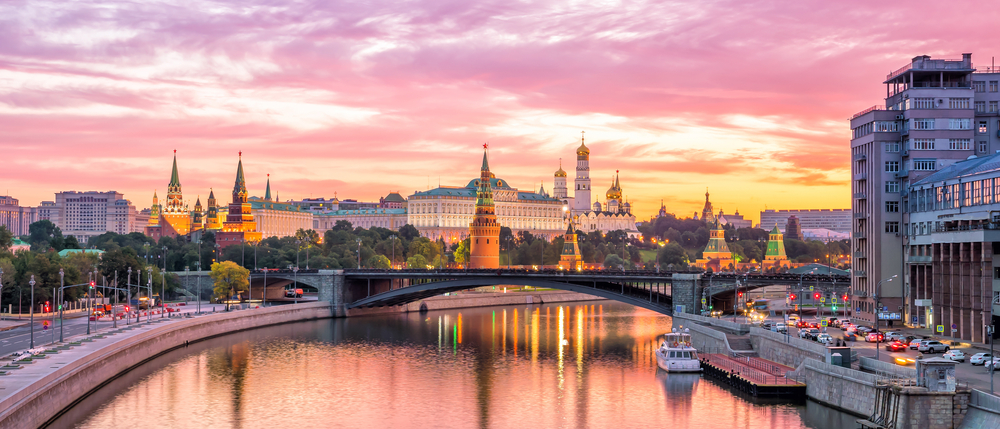In 1991, my family faced a choice for the first time: We could remain in Russia or take advantage of the temporarily loosened borders and immigrate to Israel.
There was a significant hurdle to overcome, however. To be allowed to leave, all aspiring emigrants were required to secure permission from their parents. Being nearly 40 years of age did not make a difference, although exemption from this requirement was graciously granted to those whose parents were deceased. While my mother’s sole surviving parent quickly granted permission, my father’s parents wavered for months before finally signing off. They even mentioned to me in private that I could choose to stay behind and live with them if the rest of the family moved away. At not quite 10 years old, the idea didn’t register as a real option.
I still think about this. It seems like there was a significant chance that it would not have worked out for us to leave as a family. And there was even a minute chance I might have chosen to stay behind. What would my life have been like in that case? The experience of another Jewish emigrant from my Russian home city, Olga Zilberbourg, yields some clues. She has described the extreme fear that dominated her teenage years after 1991, before she herself was able to immigrate to the U.S. The fear comes through also in Natasha Lance Rogoff’s memoir, Muppets in Moscow, where she describes filming the Russian version of Sesame Street in the late 1990s—the hopeful disposition of the actors and film crew is juxtaposed with stories of prominent public figures getting assassinated in broad daylight.
No question about it: Living in the new Russia after the collapse of the USSR has not been easy, and it didn’t help that the transition was sudden, fast, and filled with uncertainty. But what do Russians themselves think about it—you know, the ones who stayed behind, who didn’t take the same road as my family? That is the question two Oxford University researchers, Paul Chaisty and Stephen Whitefield, investigate in their new book, How Russians Understand the New Russia. The book is short but packs a mighty punch, not least courtesy of the appended data tables. As the authors explain, their work “seeks to analyse how Russians view the hybrid political economy that emerged after the collapse of the Soviet Union, with the focus on how citizens have supported or opposed the fused political and economic system as a whole—normatively democratic and market-based, in practice electoral authoritarian and patrimonial.”
Their methodology is survey-based, presenting concrete numbers behind every public opinion. The period the surveys cover is 1993 (just two years after the collapse) to 2021, shortly before the Russian invasion of Ukraine. All together we have an analysis of three decades of post-Soviet life—an entire generation, in other words. So what is the story these surveys reveal? What are the most, and the least, divisive issues for residents of post-Soviet Russia? What do they think about their world, their lives, their country and its politics, to the extent that human feelings, emotions, and real angst can be measured by surveys? And, finally, what do the silences in these surveys reveal when it comes to those, for instance, who abstain from voting in Russia’s elections?
Chaisty and Whitefield begin by presenting “two core concepts to guide our analysis of Russian public opinion: consolidation and contestation.” What does this mean? In “consolidated democracies,” contestation refers to healthy political competition (e.g., in the shape of regularly held elections without interference) that proceeds apace. Real contestation is, in other words, an essential feature of healthy democracies, because the reality of human nature is that there can be no absolute consensus on all matters. In a democracy, a vote of 100% on any matter is impossible. In functional democracies, therefore, elections and public opinion navigate a landscape filled with different groups’ preferences and disagreements. And when the votes are finally tallied, the people’s opinions bring about change of policy and change of leaders.
But this is not what we find in Russia. Post-1991 (and, especially, post-2,000) Russia, by contrast, is rather a good test case for “developing a theory of non-democratic consolidation and contestation.” A semblance of contestation exists in the form of regular elections. And yet they are not true elections—few have any doubt as to how they will turn out, and for those few who have tried to question the system, things did not turn out well (to use a euphemism). Just think of what happened to Alexei Navalny. In Russia, anyone who becomes the face of the opposition cannot expect to live long. Such was the reality under communism, and such is the reality now under Putin’s rule.
Over the period the survey covers, responses to questions reflect a decline in hope for a true democracy to arise in Russia. Furthermore, the rates of participation themselves confirm this trend. In response to poignant questions about their political system, including whether freedom of organization and speech exist in Russia, the number of those willing to respond to survey questions declined steadily over time—from 2,030 respondents to the first survey in 1993 to only 1,191 in 2021. Response rates tanked acutely in 2009 (although they rebounded briefly after that) and then again in 2021. This alone reminds us that “studying public opinion cannot be undertaken in isolation from a deep understanding of context and institutions.”
One such element of context that Chaisty and Whitefield found particularly significant is the challenge of identity that those living in post-Soviet Russia faced. How do you think of yourself when the country in which you were born ceases to exist? The USSR was a massive geographic territory that encompassed many ethnic groups that spoke different languages, lived in different local cultures, ate different foods, and read different literatures. Of course, all of them also had the Soviet culture and its heavy expectations imposed from above. Those growing up in 1950s Ukraine, for instance, lived bilingual lives, spoke both Russian and Ukrainian languages, studied (and took university entrance exams in) both Russian and Ukrainian literature and history, and perhaps thought of their identity in tension as both/and, rather than either/or. The Soviet stamp on everyone—education, language, ideology, culture—was powerful, even as it did not entirely supersede local identity for Ukrainians, Latvians, Lithuanians, Armenians, Georgians, Azerbaijanis, and so on.
The dissolution of the Soviet Union did not simplify matters. The Russian invasion of Ukraine first in 2014 and then with renewed force in 2022 only shows this reality in action all the more poignantly—including the issue of how contestation works in the new Russia. Part of Putin’s claim since 2014, after all, involved the recognition of the purported desire of the People’s Republic of Donetsk and Luhansk to be “liberated” by Russia. He was giving his people what they wanted—so the narrative went. As Russian American journalist Sasha Vasilyuk has pointed out, however, her family “never asked to be ‘liberated.’” The war against Ukraine, Chaisty and Whitefield also conclude, was Putin’s choice, not something the people demanded.
Ultimately, the story of Russia in the period under examination is one of moving from hopes for a democracy after the collapse of communism to the passive embrace of authoritarianism. The polls document the hopelessness of Russians of ever living differently, to find that elusive freedom that Soviet dissidents kept wishing for during the entire oppressive 20th century. And look where it got the Russian people: back to where they started—authoritarianism under a different name, but still unmistakably authoritarianism. Of that there can be no doubt. But government by coercion is not stable, Chaisty and Whitefield warn. It means there will be more moments of crisis when Putin’s rule is challenged in some way—presumably by other authoritarian leaders to come.
The overall story is both unique and globally significant: “This is a distinctively Russian story and given Russia’s power to disrupt the world—including its capacity to wage nuclear war that would devastate the planet—there are obvious reasons why readers should care about its political trajectory.” In other words, an unstable Russia—ruled by unstable authoritarian leaders—poses a threat to the entire world.
In reading this book, I was reminded of a Kyiv-born Russian novelist’s own take on the developments examined here. I am speaking of Eugene Vodolazkin’s most recent novel, A History of the Island. The fictional island in the novel is obviously Russia, and its history moves from an empire to the rule of various con artist revolutionary leaders who purport to give the power back to the people while crafting their own increasingly authoritarian rule, each in his own turn. At the end of the novel, the island is convulsed by a volcanic eruption—but is miraculously saved by the self-sacrifice of two saints.
Chaisty and Whitefield may agree: It would take a miracle to sort out the chaos they document in their book. In its present state, Russia offers little hope for democracy to flourish, and the reluctance of so many Russians even to answer survey questions on the topic is just another admission of despair.

